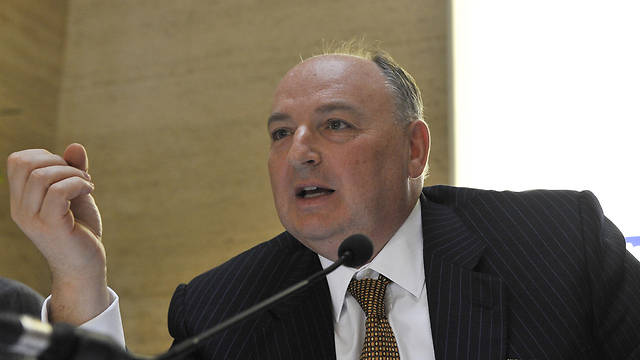Some EJC members criticize early elections, as it means no candidate could run against current president Moshe Kantor; EJC spokesman: ‘Elections were brought forward due to situation in Europe and the challenges facing European Jewry, including rise of anti-Semitism and the threats of radical Islam.’
The European Jewish Congress (EJC) will hold its elections for the organization’s leadership on Tuesday, 10 months earlier than originally planned, because of the rise in anti-Semitism in Europe and the threats of radical Islam.
About a month ago, delegates of the communities who assembled in Brussels were told by Raya Kalenova, the organization’s Executive Vice President, that following a unanimous decision by the organization’s executive members – including the elected representatives of the French, English, German, and Australian communities – the elections will be brought forward “in light of the situation in Europe and the challenges facing European Jewry.”
While this was the official reasoning given, there were some claims made that EJC President Moshe Kantor brought the elections forward in an effort to prevent World Jewish Congress leader Ronald Lauder from finding a contender by November who could defeat Kantor.

“In my opinion, Kantor’s decision to bring forward the elections speaks of hysteria; he knows that otherwise he might lose,” said a source in the EJC.
The elections are not only for the presidency, but also for other leading roles, including the deputy, but these other roles are open only for members of the communities, and not for external candidates.
The European Jewish Foundation (EJF) is supposed to gather soon, and its leaders are expected to support Kantor both in the EJC elections and also in the event that he will decide to compete against Lauder for the Holy Grail, namely the presidency of the World Jewish Congress.
In any case, Kantor is expected to win the coming elections. Kantor’s candidacy will be submitted by members of the Jewish community in Britain, represented by Jonathan Arkush, president of the Board of Deputies. The prevalent assumption is that Kantor will enjoy not only the support of the British Jewish community, but also that of the communities in central and southern Europe, yet unlike the 2012 elections, Kantor is not guaranteed the support of the Russian Jewish Congress.
A spokesman for the EJC said: “As president of the organization representing the European Jews, Dr. Kantor focuses on intensive activity for the benefit of the Jewish community, promoting its interests in the European Union’s institutions, answering the existential and security challenges that European Jews face, and safeguarding the interests of the State of Israel in the EU.
“There is no doubt that these questions have to be presented to the people at the World Jewish Congress, who are very worried of Dr. Kantor’s potential candidacy for the presidency of WJC, and who are also, clearly, the propagators of a series of articles meant to harm the EJC, even during such a problematic period for the European Jewry. Interestingly, only a few days ago, during a WJC board meeting by phone, the need for a special and urgent unscheduled gathering of the organization’s general assembly was surprisingly declared, if only for the purpose of enabling Lauder to run for third term, which is prohibited by regulations. The organization’s management approved the proposal, and a special general assembly will be held this coming March.”
As reported by Ynetnews
